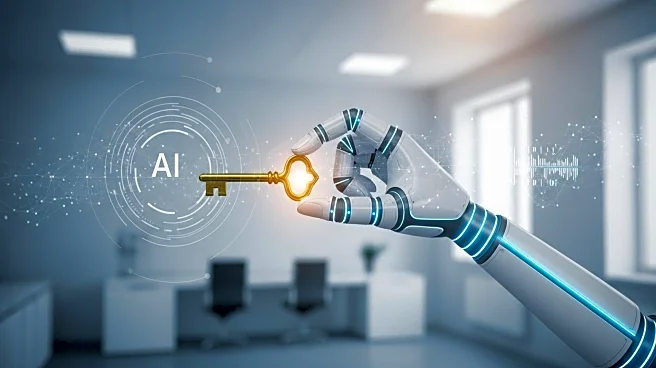What's Happening?
Artificial intelligence (AI) is increasingly becoming a critical component for job security across various industries. According to a report by CBS News, experts emphasize that the risk of job loss is not due to AI itself, but rather to individuals who effectively utilize AI in their work. This shift highlights the growing importance of AI proficiency as a skill set in the modern workforce. The report suggests that as AI tools become more integrated into daily business operations, employees who can leverage these technologies will have a competitive advantage in the job market. This trend is prompting a reevaluation of job roles and the skills required to perform them, as companies seek to enhance productivity and innovation through AI.
Why It's Important?
The integration of AI into the workplace has significant implications for the U.S. economy and labor market. As businesses increasingly adopt AI technologies, there is a growing demand for workers who are skilled in using these tools. This shift could lead to a transformation in job roles, with a focus on AI-related skills becoming a key determinant of employability. For industries, the ability to harness AI effectively can lead to increased efficiency, cost savings, and competitive advantage. However, this also raises concerns about the potential displacement of workers who lack the necessary skills to adapt to these changes. As a result, there is a pressing need for workforce development programs and educational initiatives to equip workers with the skills needed to thrive in an AI-driven economy.
What's Next?
As AI continues to permeate various sectors, companies and educational institutions are likely to increase their focus on AI training and development programs. Businesses may invest in upskilling their current workforce to ensure they remain competitive. Additionally, policymakers might consider implementing strategies to support workers transitioning to new roles that require AI proficiency. The ongoing evolution of AI technology will also necessitate continuous learning and adaptation, both for individuals and organizations, to keep pace with advancements and maintain job security.










